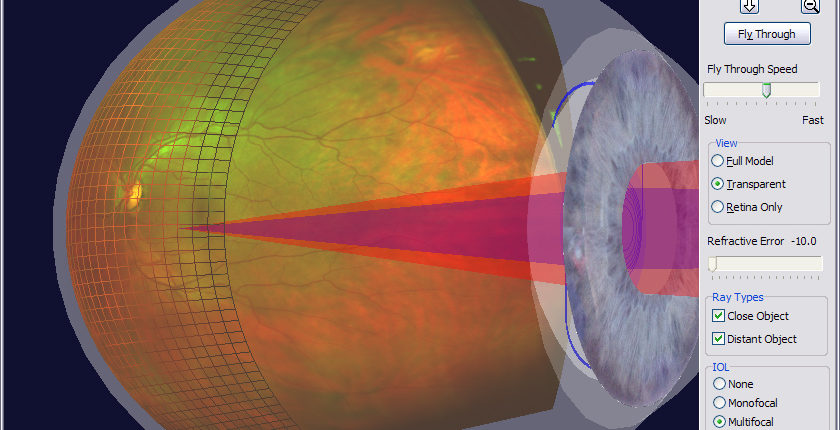Why do we offer retinal imaging at D/Vision?
If your are like most of our patients, you hate getting your eyes dilated. The hours of light sensitivity, blurred vision, stinging eye drops involved are a drag. Dilation has been important to an eye exam. This is the traditional way that a doctor can get a comprehensive view of the health of your eyes, specifically the retina. We have some good news though. Technology has improved to where a retinal imaging machine is faster and far less invasive for evaluating the retina in many cases.
So what is the retina?
The retina is the light sensitive tissue that lines the inside of our eyes. Much like the once pervasive film based cameras, the retina is like the film in the back of the camera where images from the outside world is focused. The retina allows us to see: it adapts to dark and light so that we can perceive at night and day, it differentiates different wavelengths of light (seeing color), and it responds to movement. It captures light from the outside world and sends this information to the brain which processes it into an organized view of the world. For many of us, vision is our most precious sense and the retina is vision’s most important structure.
Why is examining the retina important?
The retina is a window to the general health of the body. It is an integral part of the body so anything that affects your body such as metabolic or endocrine disorders, inflammatory conditions, circulatory disorders such as high blood pressure, or diabetes can affect the retina. As we mentioned in previous articles, the retina can also get damaged with too much UV exposure. Other than UV, there are a vast amount of things that can damage the retina. Cancerous tumors, freckles, bleeding can all occur without significant symptoms. Freckles can occur in the eye as they do on the skin. They are very common and should be monitored. Holes or tears in the retina are common and should be monitored as they can develop over time and cause serious consequences to vision. Given its central role in vision and its window to our general health, the retinal should be thoroughly evaluated.
What type of retinal imaging do we offer?
At D/Vision Optical, we offer retinal imaging with the Optos retinal scan. We can use that device to provide an instant “optomap” of the retina with no side effects, and using these images my team and I can evaluate the health of your eyes with you. Retinal scanning should be an integral part of regular comprehensive eye exams. When combined with other tests that our doctors perform, you can often complete an exam without needing to dilate your eyes. Your eyes are worth it.
If it has been a year or more since you have had exam, don’t let eye dilation be the reason. Set up an appointment today.




